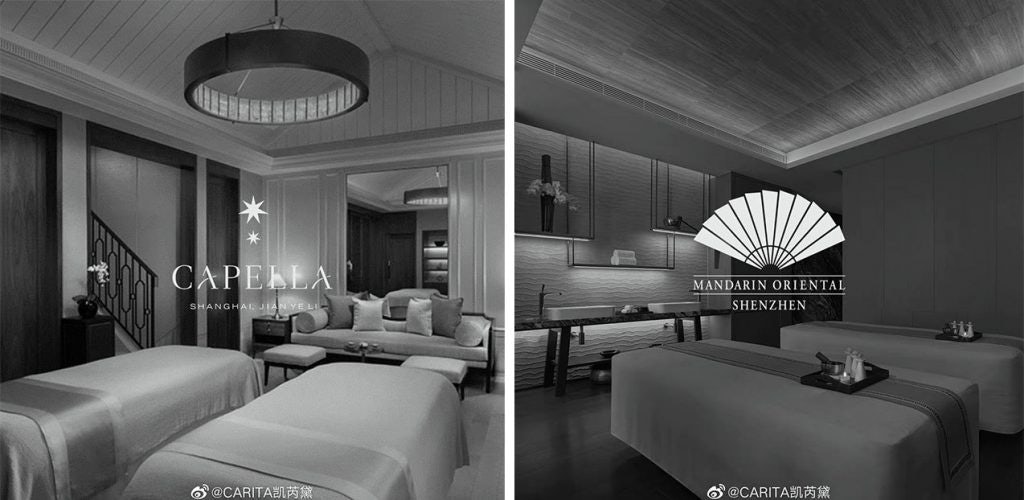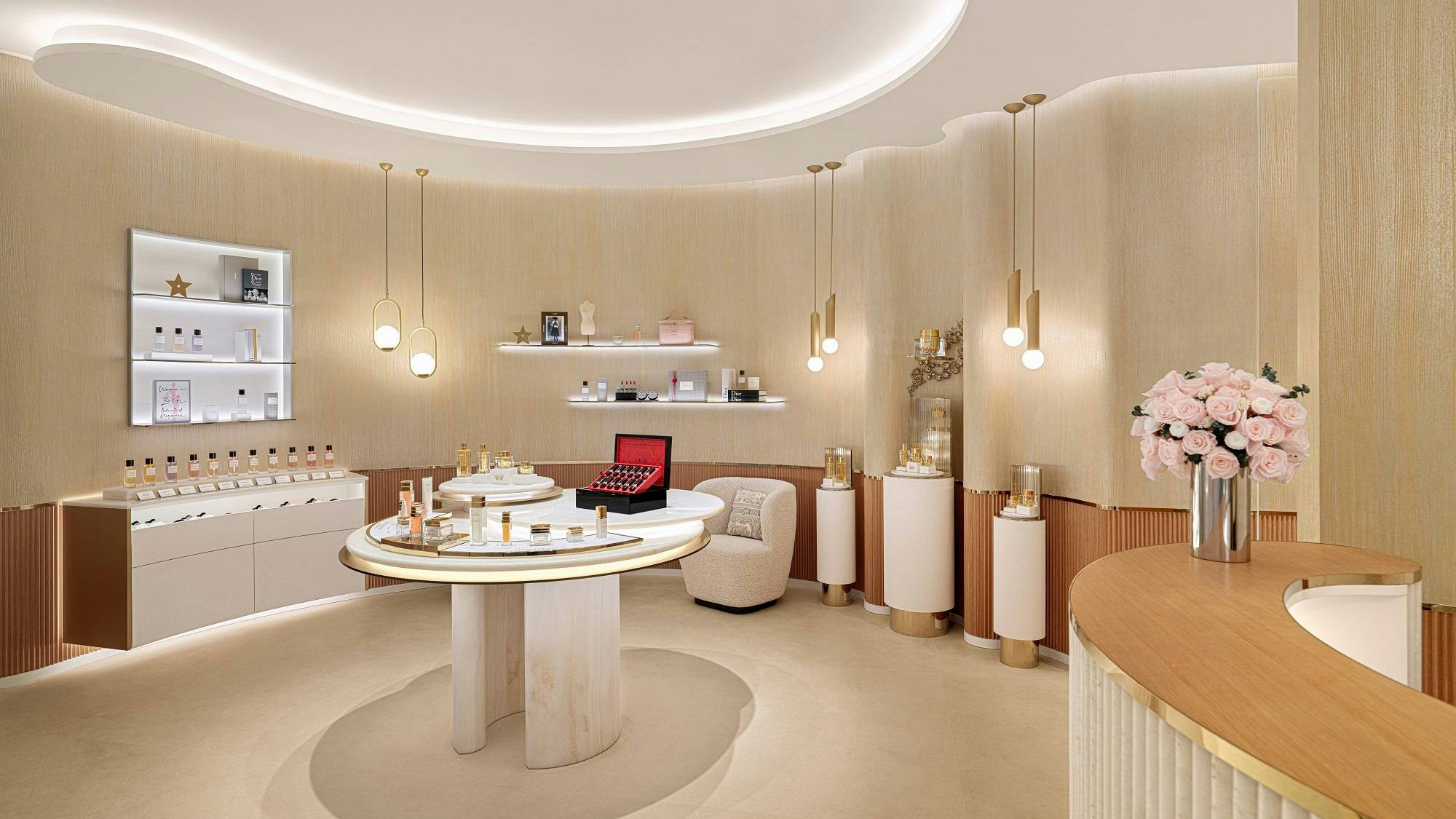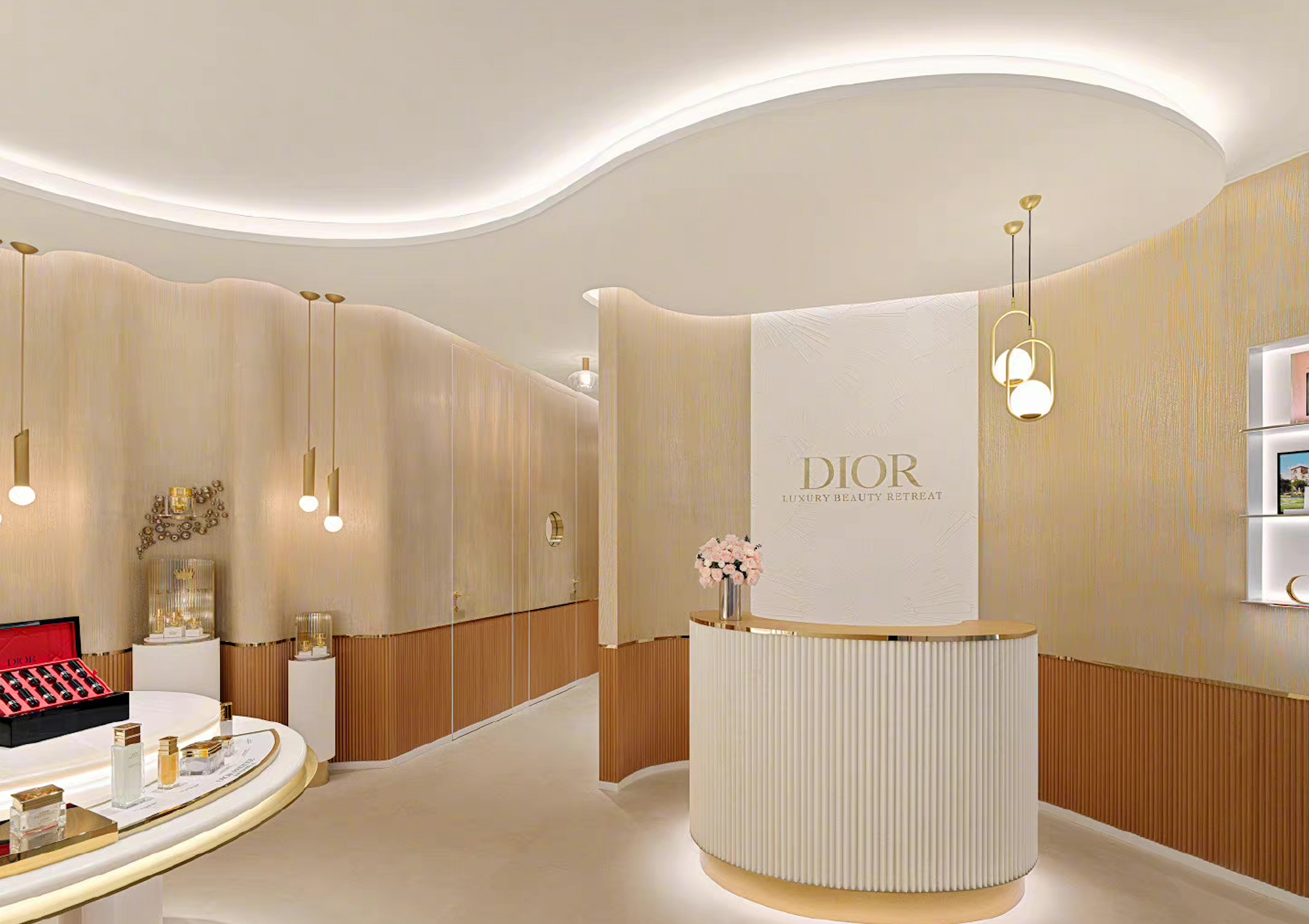The wellness sector in China has surged in the fallout from the pandemic. Consumers in the country reported the highest share of spending on wellness-related online products and services, according to McKinsey. With this increased interest, understanding of the market has also become more sophisticated.
The appeal of wellness has also been linked to the growing popularity of high-end beauty salons. Services now provide luxurious experiences combining beauty and health retreats for local Gen Z, such as creating exclusive branded spa experiences or bringing amenities like these to luxury hotels.
This trend has benefited the established houses which offered such experiences from the outset. Christian Dior was a pioneer in this regard, opening the label’s first-ever Dior Luxury Beauty Retreat in Shanghai’s IFC Mall in June. The new service offers an array of rejuvenating face and body treatments for all genders. Meanwhile, L’Oréal-owned anti-aging skincare line Carita brought luxury spa services to several deluxe hotels including Mandarin Oriental Wangfujing in Beijing, Mandarin Oriental Shenzhen, and Shanghai Jianyeli Capella this July. The activation marked the group’s official China debut on August 1, and was regarded as an attempt by L’Oréal to make inroads in the mainland’s beauty salons.

These investments are timely and sustainable, partly thanks to the traditional Chinese cultural nuance where luxury holds close associations with health. This notion holds up in the present day, where 60 percent of the country’s consumers view the practice of healthcare (or Yang Sheng in Chinese) as part of their routine, far exceeding other countries such as the US (37 percent) and Japan (14 percent).
Couple this status quo with the increasingly extravagant purchases of China’s rising middle classes, and there is a lucrative opportunity here. By incorporating beauty care into wellness retreats with their existing offerings, companies have the chance to create a cultural realignment: developing a centuries-old wellness tradition with modern knowledge and cutting-edge technology.
For today’s younger generations, luxury has increasingly become more about experience than materialism. Then again, the point of this sector has always been what something makes you feel. Now more than ever, brands should realize that it’s not the item — it’s the lifestyle.

